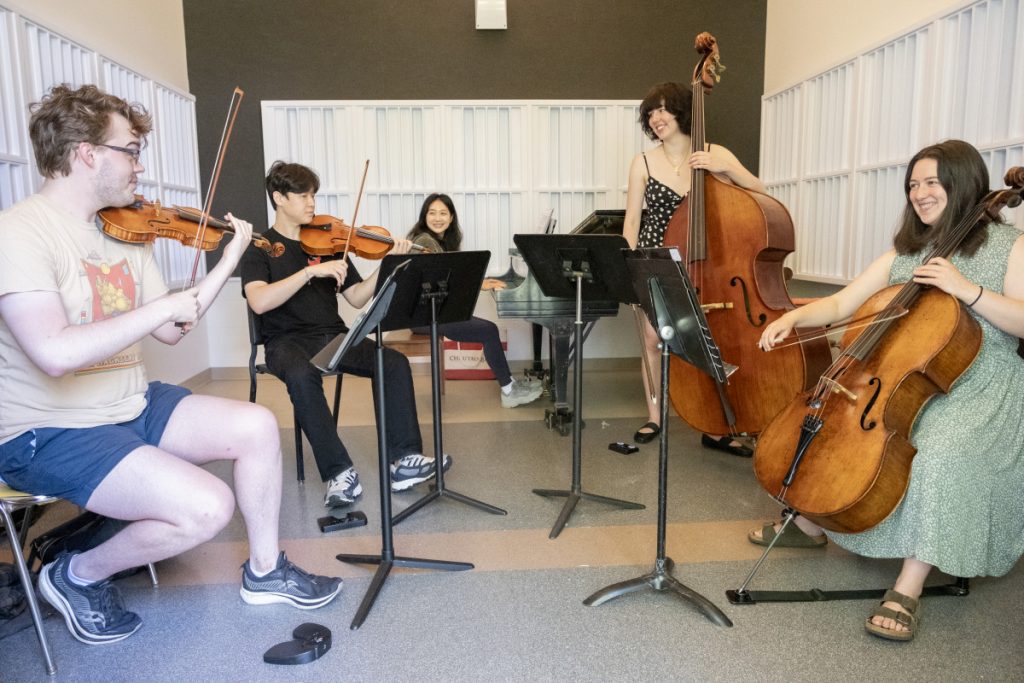
Zoe Kolenovsky
Staff writer
Pushed to improvise, School of Music students performing in this weekend’s chamber concerts will use their extensive training to make musical choices in the moment based on each other.
“It’s a wonderful learning experience,” said Kathryn Votapek, chair of chamber music in the School of Music. The structure of the concerts offers “opportunities to take chances and risks” and develops “on the spot decision-making” expertise in the performing students.
At 6 p.m. tonight in McKnight Hall, Chautauquans can enjoy the first in a series of three concerts presented this weekend by students in the Instrumental and Piano programs.
Tonight’s program begins with Grazyna Bacewicz’s Quartet for Four Violins, a lively string piece that will be performed by Matthew Musachio, Sarah Yang, Gabriella Foster and Evan Schuman. Written in 1949, the Polish composer’s piece is a display of traditional folk music through a neoclassical lens that has been called delightful and lyrical.
“The repertoire for this concert is very special,” Votapek said. “It includes some of the most beloved favorites” of the classical genre, while also incorporating “new and interesting pieces.”
Next will be a rendition of two movements from Zoltan Kodaly’s Serenade for Two Violins and Viola, Op. 12, a Hungarian piece of lighter emotional weight. Noah Ghosh and Eric Yun will be performing on violin with Owne Xayboury on viola.
Louise Farrenc’s Piano Quintet No. 1 in A Minor, Op. 20, closes the program. The first two movements of the Romantic French piece will be performed by Ian Stripling-Jenson on violin, JeongJae Lee on viola, Layla Morris on cello, Emily Green on bass, and Xiaowen Xu on piano. Then, violinist Gabriel Roth, violist Mira Vaughn, cellist Jooahn Yoo, bassist Jane Hanneman, and pianist Saehyun Park will execute the scherzo and finale together.
The program intentionally highlights female composers “the audience may not be as familiar with,” Votapek said, with Bacewicz as the opener and Farrenc concluding.
While “it’s a lot of responsibility” for the students to lead themselves through such impressive scores, Votapek believes the innovative style of the concerts promotes real-time reactions from the students is “the greatest way to make music.”




